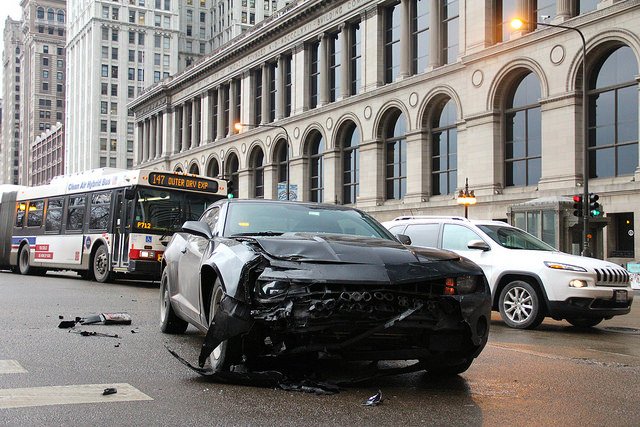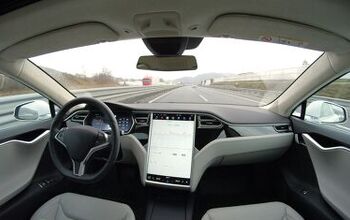Automatic Emergency Braking Won't Always Stop a Crash, But Americans Think It Will

Automatic emergency braking is finding its way into more and more cars (and automakers have a pact to make it standard equipment by 2022), but most drivers don’t know the technology’s limitations.
AEB systems slow or stop a vehicle in an emergency, preventing or mitigating a crash, but an American Automobile Association study shows that 71 percent of U.S. drivers familiar with the technology believe AEB will prevent all crashes.
AAA partnered with the Automobile Club of Southern California’s Automotive Research Center to test five 2016 models equipped with AEB. The tests showed the systems worked more or less as planned. During 70 trials, vehicles with AEB designed to prevent crashes slowed by twice the amount as those designed to simply slow the vehicle before impact.
Vehicles designed to prevent crashes shed, on average, 79 percent of their speed before impact. Those designed to mitigate the crash slowed by 40 percent. In tests conducted at speeds of 30 miles per hour or less, crash-avoiding AEB systems prevented 60 percent of the planned collisions
Still, there were some surprises in store for researchers. Under 30 mph, the systems designed to only lessen the impact actually avoided a collision 33 percent of the time.
At higher speeds, the performance of both systems diminished. At 45 mph, the crash-avoidance systems slowed the test vehicle by 74 percent, on average, and prevented collisions 40 percent of the time. The lesser AEB system only reduced vehicle speeds by nine percent.
Obviously, any reduction in speed helps the vehicle’s occupants. A speed reduction from 30 to 20 mph cuts the energy of an impact by 50 percent.
Still, the majority of drivers believe that all AEB systems will prevent a crash, without the need to manually apply the brakes. There’s a risk that motorists in AEB-equipped vehicles will become overconfident in their vehicle’s abilities. Slowing to 36 mph before hitting another vehicle is a far different outcome that avoiding the other car completely.
“The reality is that today’s systems vary greatly in performance, and many are not designed to stop a moving car,” said John Nielsen, AAA’s managing director of Automotive Engineering and Repair, in a statement.
Currently, nine percent of Americans drive a vehicle equipped with AEB. By September, 2022, virtually every new light-duty truck and car will carry the technology as standard equipment.
[Image: Daniel X. O’Neil/ Flickr]

More by Steph Willems
Latest Car Reviews
Read moreLatest Product Reviews
Read moreRecent Comments
- Chelsea I actually used to work for this guy
- SaulTigh Saw my first Cybertruck last weekend. Looked like a kit car...not an even panel to be seen.
- GregLocock Bear in mind this is purely a branding exercise and has no significant input from AM. Buying one of these is like buying a Pink Floyd T shirt, no Dave and Nick didn't personally sew it up for you.
- Lou_BC This is the sort of thing that lands 15 billion dollar Honda investments in Canada. One political party tries to undo everything the other one has done.
- Ajla "Mr Musk needs to go" "should not be CEO anymore."It isn't exactly easy getting rid of someone that owns 20.5% of the company (likely 25% by year's end), is one of the wealthiest people on Earth and has a giant media presence. Elon's only stepping down if he or God makes the decision.


































Comments
Join the conversation
Breaking news: Human stupidity threatens ability to maintain oxygen inhalation. Film at 11.
"Still, the majority of drivers believe that all AEB systems will prevent a crash, without the need to manually apply the brakes." Yeah, people are stupid. And they rely on and trust technology too much - implicitly and instantaneously. They assume because they have a feature, their guard and common sense can be disabled. See: Tesla Autopilot See: GPS crashes See: AWD overconfidence See: ABS overconfidence See: Backup cameras